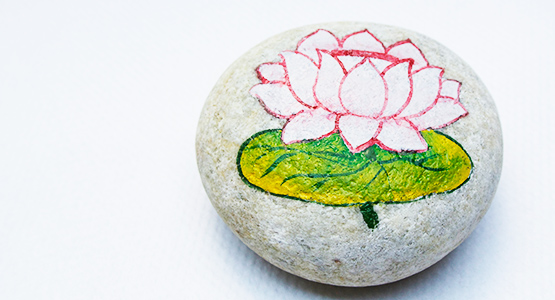You are one of a kind—from the inside, out. It’s seen in your physical characteristics and personal style, your caring nature and quick wit. You feel it, too. From the way you interpret a novel or your desire to read the latest People magazine, your journey through life is not exactly the same as anyone else’s.
We recently wrote about the common sense link between “Grandma’s Wisdom” and Ayurveda. In Ayurveda, as in days gone by, your individuality has always held the key to your wellbeing. Understanding how your body reacts to the things you put in, on and around it empowers you to make choices that will serve you well.
So, who are you? How do you start this journey into self-knowledge?
We’re used to thinking about individuality in terms of DNA or your genetic code. Ayurveda recognizes these as permanent characteristics and genetic predispositions hard-wired in Birth Constitution. Height. Weight. Eye color. All these make you an individual. Subtleties make up many other facets of you. Areas like emotional stability and spiritual inclination. But this knowledge is just part of the equation.
In life, change is continuous. You experience very slight shifts in your mental, physical and emotional wellbeing from day-to-day—even from hour-to-hour. Ideally, every morning you should wake up and breeze through your routine and head out with a smile on your face. That is life is as it we would like it to be. But some days, you are hungry, crabby and even constipated. This is not in alignment with your true nature. Ayurveda labels this picture your Today’s Constitution. It is a look at how your body, mind and senses are uniquely responding to the world around you in the moment, or what imbalance (or disease) is manifesting.
Together, your two constitutions help gauge your state of health and enable you to maintain a personal vibrancy. In the months to come, we will explore these areas in greater detail. For now, there is an important takeaway. It is that in looking at your individuality, Ayurveda functions as a customized system of wellbeing. In other words, taking into account both the permanent and changing factors enables you—to make it all about you.
Conventional medicine acknowledges that individual distinctions impact wellbeing. With the completion of the Human Genome Project in 2001, gene variances and their connections to specific diseases came to light. The project confirmed that genetics play a major role in determining health and longevity, but it didn’t explain why two people with the same markers can travel vastly different paths. This is where the science of Ayurveda becomes so important.
Genetic markers alone cannot determine if a person might experience illness. Ayurveda has known this for thousands of years. Regardless of predispositions, nearly all diseases involve environmental, emotional and nutritional factors. The ancient science goes on to explain that no two people travel the same path to disease or to wellbeing. Diet and lifestyle decisions play a critical role in determining your health. And they have a vastly different impact on different individuals.
Sound like common sense? We think so. Stay tuned for the next post in this series. It will explore another common sense Ayurvedic principle—health and harmony go hand-in-hand.


